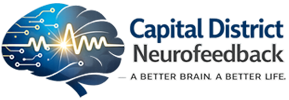Proven Answers To Anxiety… Even in a COVID-19 World
As many have acknowledged already, anxiety is on the rise because COVID has affected most of our lives in significant ways. At this moment, both active cases and death rates have escalated. This fact alone serves to escalate our fears and anxiety.
Prior to COVID-19, very few of us dealt with daily threats to our existence, but this did not thwart our struggles with anxiety. Now, with COVID added to our lives and the very real additional threats that exist, many are struggling with levels of anxiety that are truly debilitating.
The Current Triple-Threat To Finding Comfort
In a sense, this unique situation brings a triple-dose of anxiety. First, there are the broad-based fears of the impact upon our society, and our social-economic world. These are uncontrollable events that add to create a general sense of fear. The thought, perhaps, ‘I should be worried” is constantly reinforced by the media, as well as friends and family. Strike one.
We must add more to this already overwhelming picture, however, as the very real threat to our safety, or the safety of those we love, comes from getting COVID. We could get very sick, be hospitalized, and potentially lose our life. While portions of staying safe may be out of our control, it is also clear that smart action significantly serves to protect us from the most intimate stress of getting the virus. We must be vigilant today, to remain smart and to take smart action. This is stressful. Strike two.
Yet, this mess isn’t over. The challenges, while perhaps we handled well today, are not yet over. Thus, we wake up every day, and if wise, we must continue to take smart action to stay safe. This again adds an element of stress that we now must cope with daily. And we don’t know for sure when this will end. Our normal fight-flight response is activated and reactivated, with no end in sight. Strike three.
The triple threat of anxiety generators… all coming together now to make these times among the most trying. Yet, we need not feel lost. There are a number of ways out of this triple threat, but for today, we focus on how to more permanently improve how the brain works using Neurofeedback.
What is Neurofeedback and Why Consider Neurofeedback for Anxiety!
First, let’s address question two quickly and in more detail later on. You would evaluate Neurofeedback for anxiety because study after study has shown efficacy in reducing a range of anxiety-related symptoms while correcting the underlying causes of the anxiety in the brain. That’s the short version.
Loading Video...
Now, what is Neurofeedback? Technically, Neurofeedback is a type of biofeedback, which uses feedback signals of minute shifts in brain waves to teach the brain self-correcting changes. Nothing is forced upon the brain. Instead, while brain waves are doing their normal ‘stuff,’ there is constant flux and variation. These small, momentary changes afford us the opportunity to train the brain toward healthier patterns of brain waves.
Anxiety disorders, as well as almost all brain disorders, have certain somewhat characteristic patterns of brain waves that have deviated from the norm. These more deviant patterns are the focus of Neurofeedback as training these brain waves toward a more normalized pattern typically reduces anxiety and related symptoms.
I have often written that thoughts are like magnets, pulling in similar thoughts and emotions, regardless of how painful or stressful the thought. With Neurofeedback technology, we can now map the brain with a Quantitative EEG, or QEEG. This ‘map’ affords us the opportunity to identify any abnormal patterns and to focus treatment on those areas first. This is one of the reasons why treatment rates in clinical settings have consistently increased over the years.
Loading Video...
The QEEG also shows us how patterns of brain waves because quite established and are resistant to change. These patterns could be thought of as carriers for thoughts; thus, we can more deeply understand that one thought follows another without any effort on our part. In fact, it’s virtually impossible to stop these thoughts on our own for an extended period of time.
Why Neurofeedback is Compelling
With Neurofeedback, we are able to focus on specific areas of the brain and address detailed variations in four primary brain waves, beta, alpha, theta, and delta. In effect, Neurofeedback re-trains the brain to utilize healthier and more efficient brain waves. These changes in brain wave patterns occur over weeks and automatically tend to create more comfortable, productive, and optimistic thoughts. Anxiety and its many symptoms lessen over time.
Does Neurofeedback work all the time? No, of course not. However, with the evolution in clinic-based QEEG’s, more refined hardware and software, as well as better research, clinical rates for improvement continues to get better year by year.
If you are frustrated with ineffective therapy or medications that scare you or have failed, please consider Neurofeedback as a solution. The positive changes often continue to improve over time, as the brain is being opened up to a self-corrective process that does not seem to end when training is complete
Loading Video...
We have helped many right here in our offices with mental health challenges. People from Clifton Park to Albany dealing with your same challenge (See a list of conditions treated here). We even offer some convenient remote training to ease the travel burdens.
Give Capital District Neurofeedback a call for more details today.





